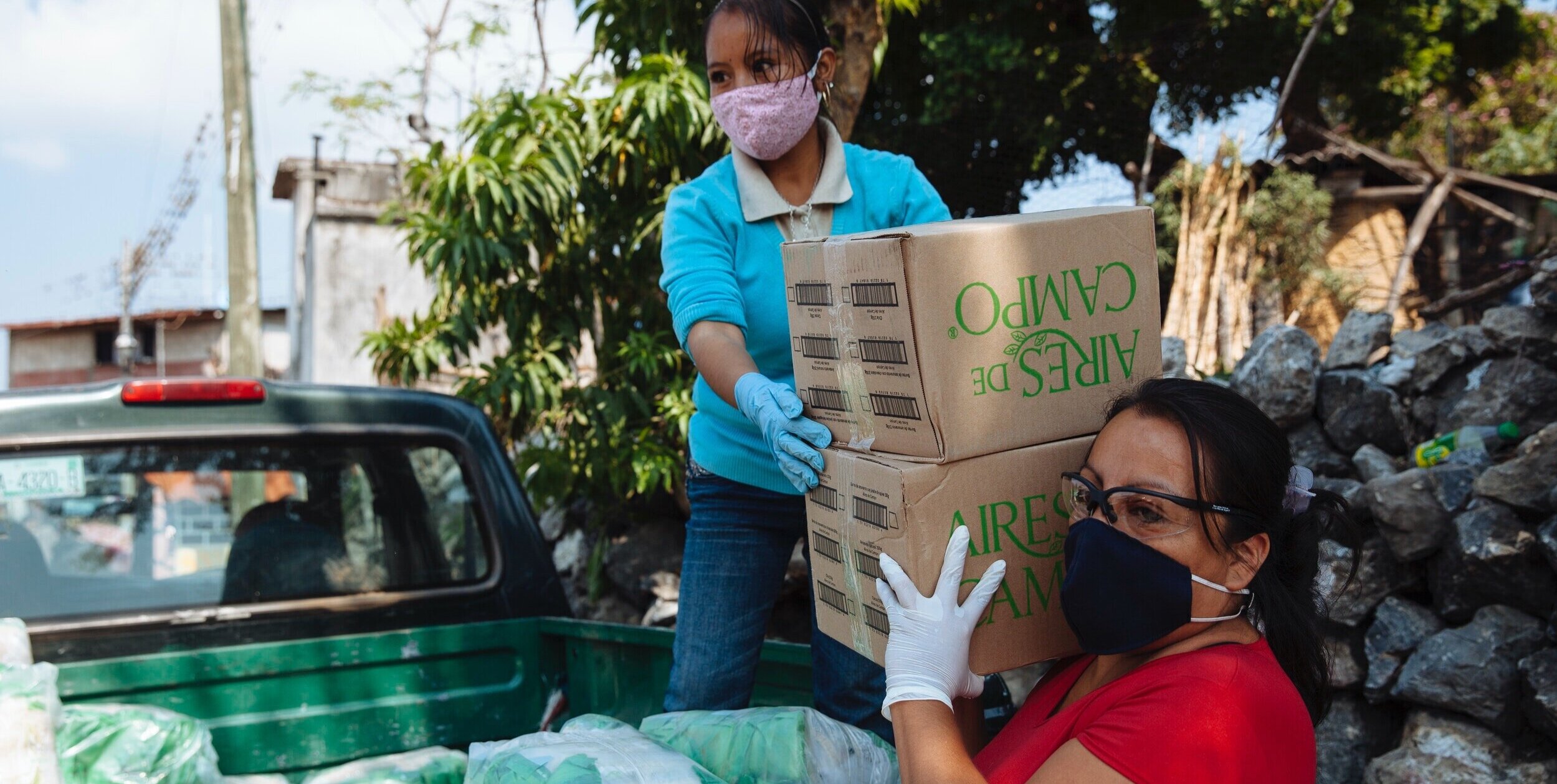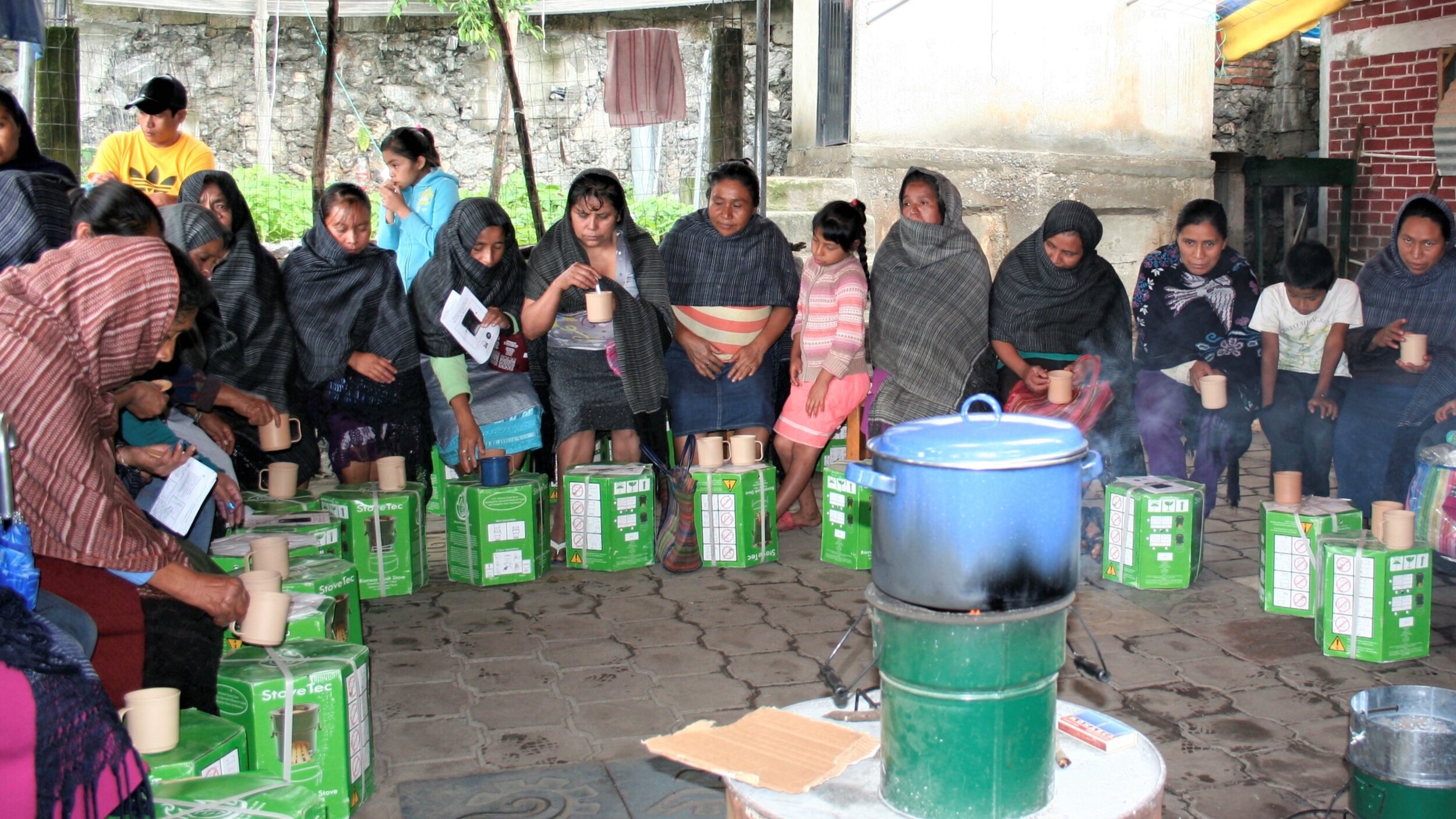Building community against the odds - Part 3: witnessing covid take its toll
Atzin promotors unloading food donation from Aires de Campo (Mexico City) for next distribution (29 May, 2020) Photo Credit: www.rodrigocruz.com
Following the door to door visits in early May, Atzin promotors could see signs of the coronavirus “percolating.” Households were describing symptoms matching those on Atzin’s covid checklist, but a case had yet to be officially confirmed. Now, the village has moved from “percolating” to “early outbreak” conditions, reports Susan Smith, Director of Atzin.
In the month of May, 18 villagers have died, all confirmed or presumed to be related to the covid virus. At the time of writing, five more are seriously ill in the municipal hospital, including a ten-year old boy. This is dramatic for a community that normally has one or two deaths per month. At the moment, the death rate is doubling on a weekly basis indicating that Tlama is still very much on the upside of the covid curve. The serious cases began in one barrio, close to the centre of the village, and are spreading from there. The first case (with recovery) has now been publicly confirmed as having occurred on 20 April, 2020.
People fall ill quickly. Susan recounts individual stories of victims succumbing in a matter of hours. While older adults are at risk, all but one of the deaths in Tlama have occurred among people in the 30 to 60 age range. The virus overwhelms the body very fast: “the person feels unwell, weak, and has difficulty breathing, and then collapses in a matter of hours.”
Susan and colleagues are tracking infections and deaths as closely as possible. They are searching for patterns, and are watching global reporting on covid; in particular, documentation showing connections between the covid illness and pre-existing health conditions. These include lung disease, diabetes, obesity and cardiovascular disease, all of which are prevalent in the village. Also surfacing in the literature about the virus are the exacerbating effects of particulate matter on covid transmission and illness. The Atzin team have have related all these connections to their investigations of village conditions over the past 20 years: the toxicity of arsenic and lead in the soil and water; the presence of junk food, soft drinks and processed foods laden with sugar, chemicals and oil; and importantly, the air quality in the crowded houses. The village’s pollution is not from cars or industry but from the three-rock cooking fires in most homes.
Tackling wood smoke in the house
In groups of 10 to 15, cooks of 300 households are introduced to an ecological rocket stove. Here, a group enjoy a cup of tea prior to taking a new stove home. This stove uses half the firewood, emits half the smoke, and takes half the cooking time, compared to a three-rock fire. This was an Atzin focus prior to the pandemic.
Two food distributions to 400 households are complete and a third one finished this week. By the end of the second distribution, 2,600 kg bags of beans and lentils had been distributed along with 2,500 cloth face masks sewn by seven local women.
Households attend the 3rd Atzin distribution at their scheduled times. Photo Credit: www.rodrigocruz.com
Following generous donations from the Mexican multimedia organization, Grupo Formula, and the organic food distribution network, Aires de Campo, the team expanded the distribution list to 615 families, recognizing their total loss of income from street sales and the rising prices of food staples. The number of additional households asking for food is increasing daily, with people pressuring the young promotors to be added to the list.
While satisfied with progress to date - and in particular with the courageous and persistent work of the young promotors on the front lines - the covid prevention campaign is running up against at least two countervailing forces. One is the dismissive “¡el coronavirus no existe!” opinion among most men in the community – a difficult opinion to maintain as the number of sudden deaths mounts in a such short time period. A deliberate effort to involve more men in the covid campaign may help to counter macho attitudes, and to protect the donated food stocks in the Atzin Centre.
Traditional beliefs in the community held mostly among middle aged and older members of the community explain illnesses in terms of susto, evil eye and witchcraft. At the team’s weekly debriefs, the promotors hesitate about the effectiveness of their education messages. “I am convinced about covid,” says one promoter, “I see it happening, but I haven’t been able to convince others.” At home with family, “they are caught in the middle of two ways of believing,” Susan comments.
From emergent, to percolating, to outbreak – a fearful tension arises.
For more information:
visit http://www.atzin.org
please consider a tax deductible donation.





